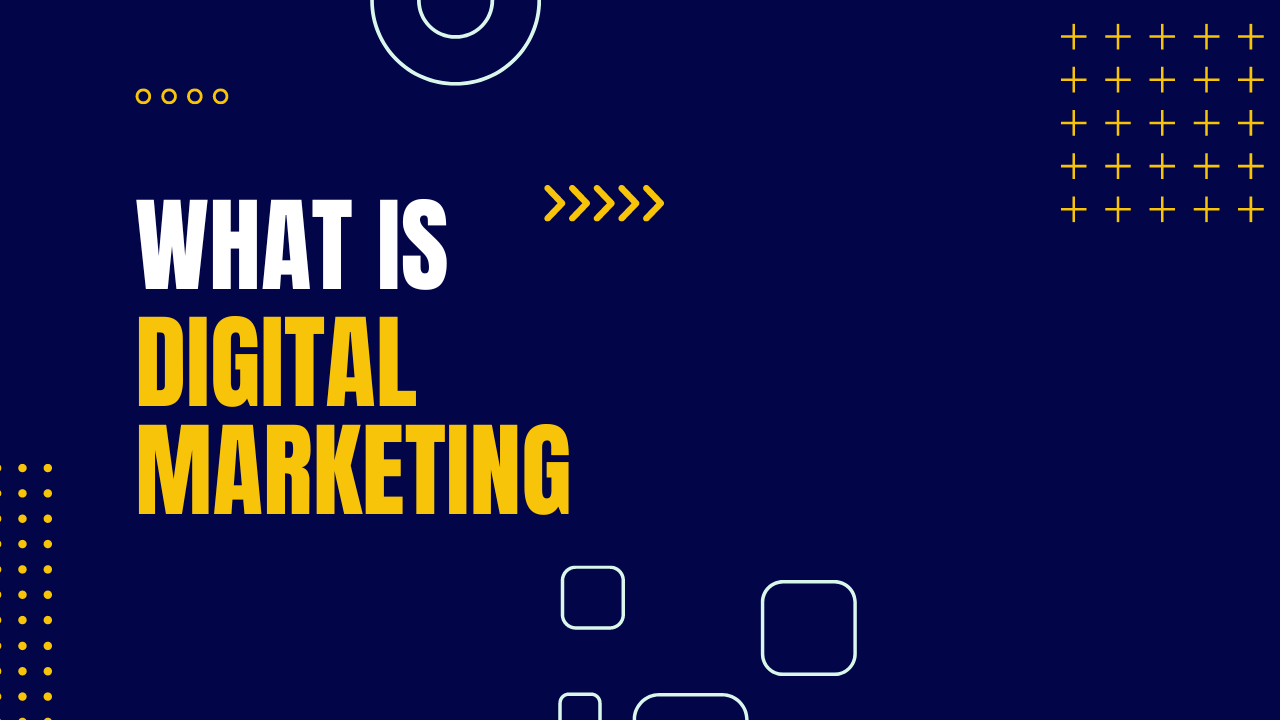Digital marketing refers to the use of digital channels and technologies to promote products or services. It encompasses a broad range of strategies aimed at reaching a target audience online.
1. Online Presence
Digital marketing involves establishing and maintaining an online presence through websites, social media, and other digital platforms. This presence is essential for reaching a broad audience and providing information about your brand.
2. Search Engine Optimization (SEO)
SEO is a critical component of digital marketing. It involves optimizing your website and content to rank higher in search engine results. This increases visibility and attracts organic traffic to your site.
3. Content Marketing
Content marketing focuses on creating and sharing valuable content to attract and engage your audience. This includes blog posts, videos, infographics, and more. The goal is to provide value and build trust with your audience.
4. Social Media Marketing
Using social media platforms to promote your brand and interact with your audience. Social media marketing involves creating engaging content, running ads, and fostering a community around your brand.
5. Email Marketing
Email marketing involves sending targeted emails to your audience to promote products, share news, or nurture leads.
Benefits and Disadvantages of Digital Marketing
Digital marketing has become an essential part of modern business strategies, offering numerous advantages but also posing some challenges. Here’s an in-depth look at the benefits and disadvantages of digital marketing.
Benefits of Digital Marketing
1. Global Reach
- Accessibility: Digital marketing allows businesses to reach a global audience with minimal cost, breaking down geographical barriers that traditional marketing often faces.
- Scalability: Campaigns can be easily scaled to target new markets without the need for a physical presence.
2. Cost-Effective
- Lower Costs: Compared to traditional marketing methods like TV, radio, or print ads, digital marketing is generally more affordable and provides a higher return on investment (ROI).
- Budget Control: Businesses can set precise budgets and allocate funds to specific channels or campaigns, ensuring efficient use of resources.
3. Targeted Audience
- Precise Targeting: According To My Comparision Guide, Digital marketing tools allow for precise targeting based on demographics, interests, behavior, and other criteria. This ensures that marketing efforts reach the most relevant audience.
- Personalization: Marketers can create personalized content and ads that resonate with specific segments of their audience, increasing engagement and conversion rates.
4. Measurable Results
- Analytics and Reporting: Digital marketing provides detailed analytics and reporting tools that help track the performance of campaigns in real-time.
- Performance Metrics: Key metrics such as website traffic, conversion rates, click-through rates, and customer engagement can be measured and analyzed to improve strategies.
5. Engagement and Interaction
- Direct Communication: Social media and other digital platforms allow for direct communication with customers, fostering relationships and building brand loyalty.
- Real-Time Feedback: Businesses can receive immediate feedback from customers, allowing for quick adjustments and improvements.
6. Flexibility and Adaptability
- Agility: Digital marketing campaigns can be quickly adapted to changing market conditions, trends, and consumer preferences.
- Variety of Formats: Marketers can use various formats such as blog posts, videos, infographics, podcasts, and more to engage their audience.
7. Improved Conversion Rates
- Efficiency: With targeted campaigns and personalized content, digital marketing often leads to higher conversion rates compared to traditional methods.
- Ease of Transactions: Online marketing facilitates easier transactions, reducing the steps needed for customers to make a purchase.
Disadvantages of Digital Marketing
1. High Competition
- Market Saturation: The digital space is highly competitive, with many businesses vying for the attention of the same audience. This can make it challenging to stand out.
- Constant Updates: Keeping up with the latest trends, algorithms, and best practices requires continuous effort and investment.
2. Dependence on Technology
- Technical Issues: Websites, social media platforms, and other digital tools can experience technical issues, causing disruptions in marketing efforts.
- Security Risks: Digital marketing involves handling sensitive customer data, which can be vulnerable to cyber attacks and data breaches.
3. Time-Consuming
- Content Creation: Creating high-quality, engaging content takes time and effort.
- Ongoing Management: Effective digital marketing requires continuous monitoring, optimization, and management of campaigns.
4. Privacy Concerns
- Data Collection: Digital marketing relies heavily on data collection and analysis. This can raise privacy concerns among consumers, leading to trust issues and potential legal challenges.
- Regulations: Compliance with data protection regulations like GDPR (General Data Protection Regulation) and CCPA (California Consumer Privacy Act) is essential but can be complex and time-consuming.
5. Rapid Changes
- Evolving Platforms: Digital marketing platforms and tools are constantly evolving, requiring businesses to stay updated with the latest changes and trends.
- Algorithm Changes: Search engines and social media platforms frequently update their algorithms, which can impact the visibility and effectiveness of marketing campaigns.
6. Skills and Expertise
- Specialized Knowledge: Effective digital marketing requires specialized skills and expertise. Businesses may need to invest in training or hire professionals to manage their digital marketing efforts.
- Learning Curve: There can be a steep learning curve for businesses new to digital marketing, requiring time and resources to achieve proficiency.
7. Potential for Negative Feedback
- Public Scrutiny: Digital platforms expose businesses to public scrutiny, and negative feedback or reviews can quickly spread and damage a brand’s reputation.
- Crisis Management: Effective management of negative feedback and online crises is crucial, requiring well-defined strategies and prompt action.
Conclusion
Digital marketing offers numerous benefits, including global reach, cost-effectiveness, precise targeting, measurable results, and improved engagement. However, it also comes with challenges such as high competition, dependence on technology, privacy concerns, and the need for continuous learning and adaptation. Businesses must weigh these advantages and disadvantages to create effective digital marketing strategies that align with their goals and resources. By staying informed and adaptable, businesses can leverage the power of digital marketing to achieve sustainable growth and success.










